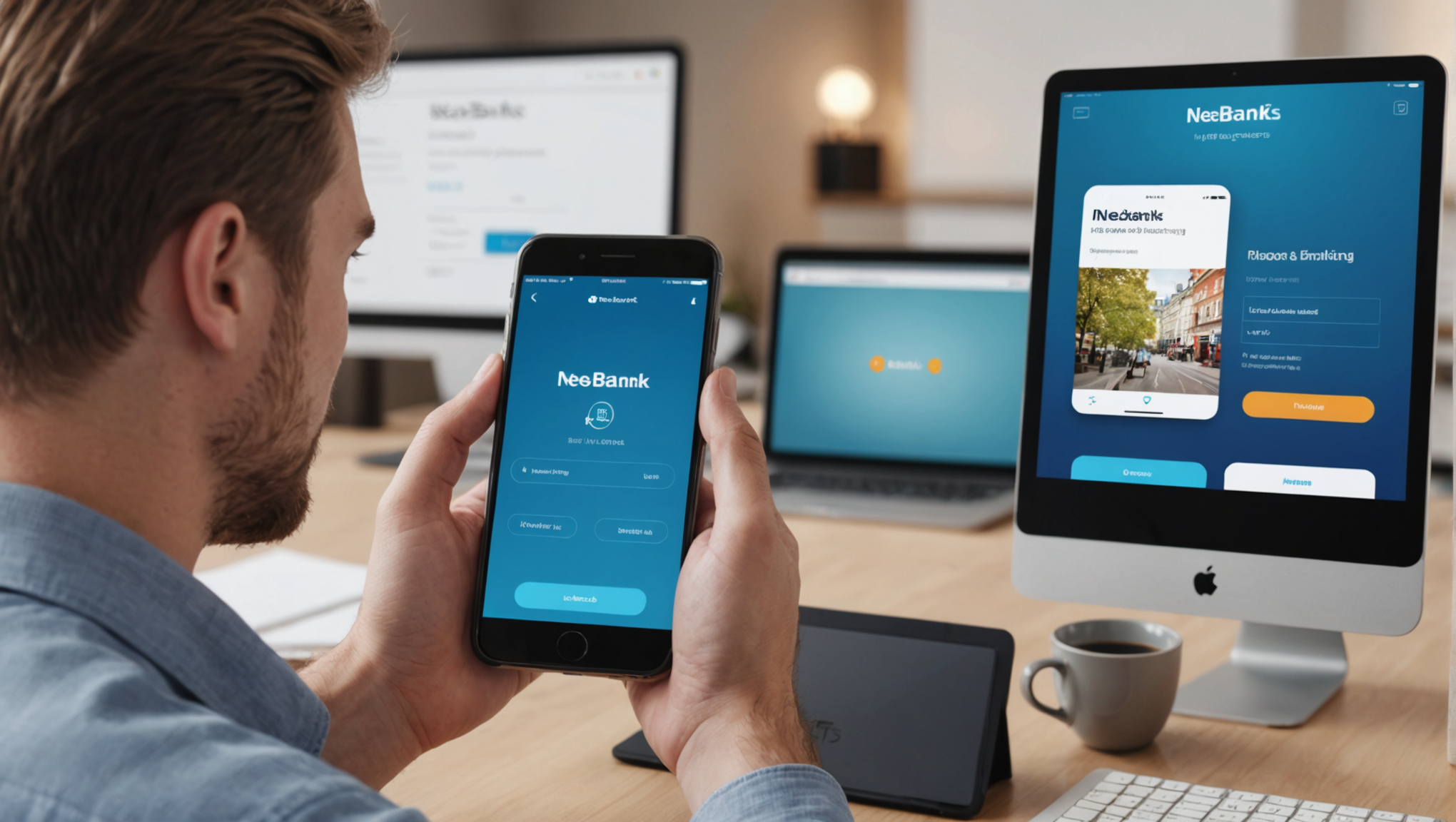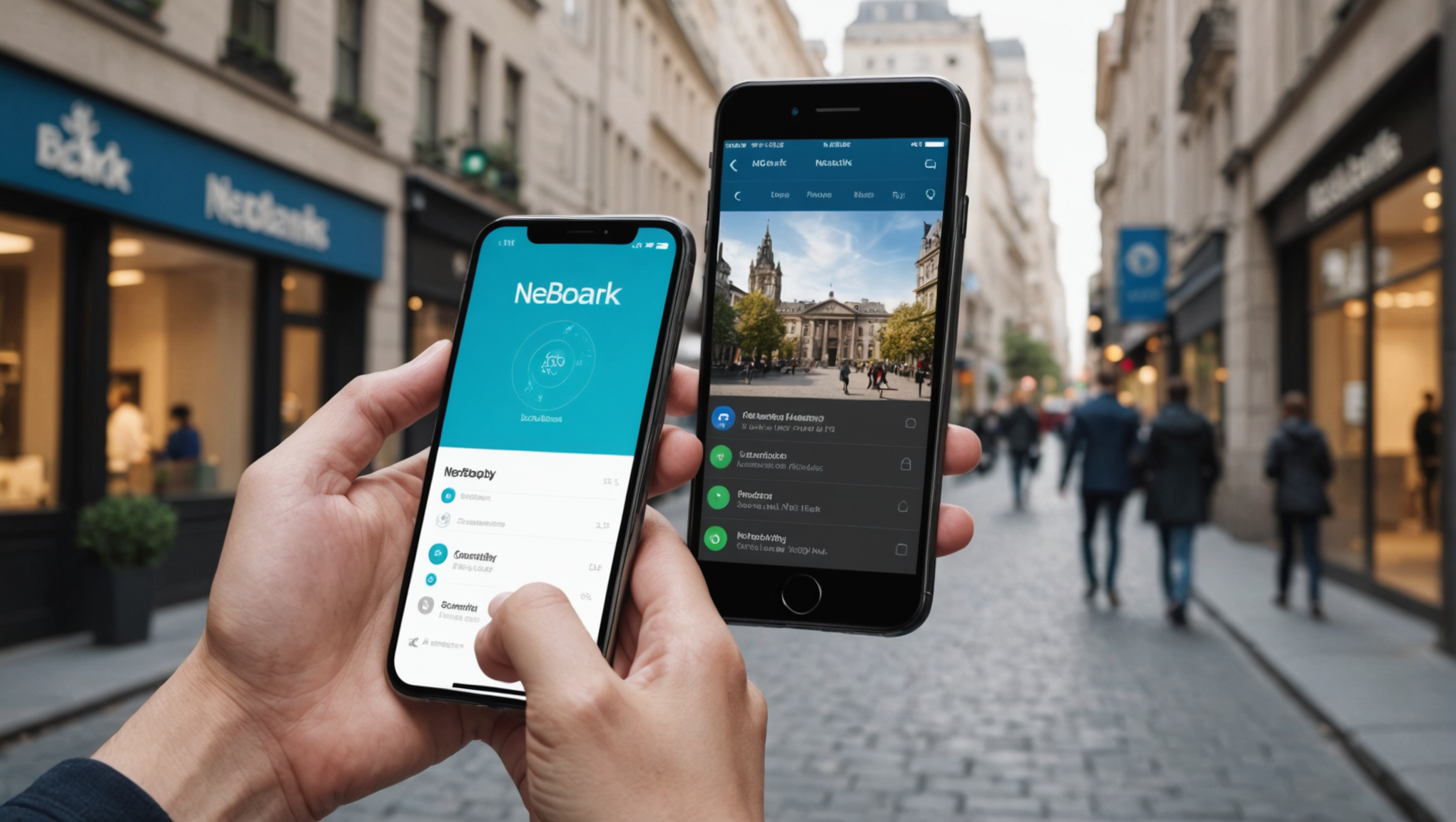Are you in search of innovative banking management? Look no further! Neobanks are on the rise and garnering more and more interest. These new financial institutions, fully digital, have managed to stand out by democratizing access to a range of financial services that are both varied and simple. From quick account opening to reduced fees, neobanks promise a revolutionary user experience while adapting to modern needs. But just because there are benefits doesn’t mean there are no drawbacks. Indeed, while these banks offer particularly attractive rates, certain limitations, such as the absence of credit or cash deposits, can raise questions.
This introduction thoroughly explores the unique characteristics of neobanks and the aspects that make them so appealing, while highlighting the gray areas that may concern future clients. Understanding this phenomenon is essential for anyone wishing to navigate wisely between the promises of fintech and the traditional values of classic banks. So, what are you waiting for to dive into this exciting universe?

Table of Contents
ToggleNeobanks: understanding the advantages and disadvantages of these online banks
In an increasingly connected world, neobanks attract a growing number of users with their innovative offers and digitalized approach to finance. These online financial institutions, which do not have physical branches, offer varied services while promising lower fees compared to traditional banks. But what truly makes these banks different, and why do so many consumers trust them? This article delves into their advantages and disadvantages in the current context, providing concrete elements to better grasp this phenomenon.
Advantages of neobanks: unprecedented accessibility and agility
One of the most striking aspects of neobanks is undeniably their accessibility. Opening an account is often quick and easy, done directly from a mobile app. A recent study by KPMG revealed that 60% of neobank users opened their accounts in less than 10 minutes. Who would say no to such a promise of simplicity?
Another notable advantage concerns bank fees. Most neobanks charge lower fees than traditional banks, making them particularly attractive to young people and professionals on the go. For example, almost nonexistent account maintenance fees are common, not to mention reduced fees for international transactions based on the interbank exchange rate, with no commission. Studies show that users can save 25% to 50% on their annual banking fees by choosing a neobank.
Neobanks also stand out for their innovative services tailored to a modern lifestyle. Many solutions such as expense analysis, real-time financial advice, and instant notifications when transactions are made allow users to have a clear view of their financial health. A study commissioned by the EBF highlighted that 70% of neobank users feel better informed about their finances compared to their previous banking experiences.
Disadvantages of neobanks: limits and precautions to consider
Despite their undeniable strengths, neobanks are not without disadvantages. An important aspect to consider is the fact that they generally do not offer the same comprehensive services as traditional banks. For example, most neobanks do not provide loans or cash deposits, which may pose a problem for some clients. In 2023, a survey revealed that 40% of neobank users encountered difficulties obtaining a personal loan, a service they could have easily obtained from a traditional bank.

Another point to highlight is the safety of deposits. Neobanks, being payment institutions and not credit institutions, do not necessarily have the same insurance as traditional banks. In France, for instance, the deposit guarantee ceiling is set at €100,000. Neobanks can offer similar guarantees, but regulations can vary. This is a crucial element consumers must pay attention to.
Finally, the absence of physical branches can also represent a disadvantage for some. For clients who prefer human interactions, personalized advice, or simply having a physical contact, the neobank model may be perceived as limited. A recent study estimated that 30% of potential clients believe that the lack of branches could hinder their adoption of a neobank.
Future perspectives of neobanks: a revolution on the horizon
As fintech continues to transform the banking landscape, neobanks remain at the forefront. The growth of the neobank market is also fueled by the rise of online payments, leading to an increased quest for practical and accessible solutions. Companies like Revolut and N26 have become references that encourage more and more consumers to change their banking habits.
Looking ahead to 2024, some experts anticipate that neobanks will develop new services, such as savings products tailored to contemporary needs or even more automated financial management solutions. Innovations in the field of cryptocurrencies and blockchain also promise new efficiencies in transaction management.
For those considering joining the world of neobanks, it is advisable to explore the available options and fully understand the offered services, particularly through online comparison tools and feedback. Do not hesitate to consult detailed resources such as the 10 best online banks or analyses of their advantages and disadvantages.
💳 La néobanque la plus utilisée est: Bankin' !
— hiboo.expert (@hibooexpert) June 1, 2024
Vous êtes client ? pic.twitter.com/ISuR5VoK7F
FAQ about Neobanks
1. What is a neobank?
A neobank is a 100% digital bank that operates through a mobile app or online interface. Unlike traditional banks, neobanks do not have physical branches, allowing them to offer services that are often faster and less expensive.
2. What is the difference between a neobank and an online bank?
Neobanks are fully mobile and do not have physical infrastructures, while online banks are digital extensions of traditional banks. Neobanks focus on the mobile user experience, with simplified interfaces and innovative financial services.
3. What are the advantages of a neobank?
Neobanks generally offer reduced fees, more intuitive account management via a mobile app, real-time notifications for each transaction, simplified account opening, and features like expense analysis or automated savings.
4. Are neobanks secure?
Yes, neobanks use advanced encryption technologies to protect user data and adhere to the same financial regulations as traditional banks in Europe, such as the Payment Services Directive 2 (PSD2). Additionally, many offer extra security tools such as two-factor authentication and instant card freezing.
5. How do I open an account with a neobank?
Opening an account with a neobank is generally quick and fully online. You just need to download the neobank’s app, fill in some personal information, provide an ID, and follow the steps to validate your registration.
6. What are the main neobanks in France and Europe?
In France and Europe, popular neobanks include N26, Revolut, Bunq, Monzo (United Kingdom), Qonto (for professionals), and Orange Bank. Each neobank is distinguished by its specific services and pricing offers.
7. Can you get a bank card with a neobank?
Yes, most neobanks offer a bank card (physical or virtual) linked to your account, often a Mastercard or Visa. Some cards are free, while others may have fees with premium benefits (insurance, no fees for international withdrawals, etc.).
8. Do neobanks offer loans or credit?
Some neobanks offer loan or credit services, but this varies by institution. Revolut, for example, has started offering personal loans in certain countries. However, these services are less common than in traditional banks.
9. Can you receive your salary in a neobank?
Yes, you can have your salary directly transferred to your neobank account. These accounts typically have an IBAN, often European (like the German IBAN at N26), which can be used for SEPA transfers in Europe.
10. What are the disadvantages of a neobank?
Neobanks may have limitations such as the lack of physical services, limited diversity in financial products (loans, life insurance, etc.), and sometimes customer support that is only available online or via chat. Additionally, some do not offer an authorized overdraft.
11. Are neobanks suitable for professionals?
Some neobanks, like Qonto or Shine, are specifically designed for professionals and freelancers. They offer tailored services like invoice management, multi-user cards, and an interface for tracking business expenses.
12. Are neobanks regulated by banking authorities?
Yes, neobanks operating in Europe are generally regulated by financial authorities like the European Central Bank or national regulators. They must comply with applicable laws, particularly regarding anti-money laundering and data protection.





